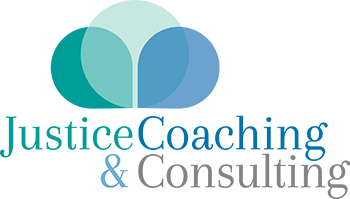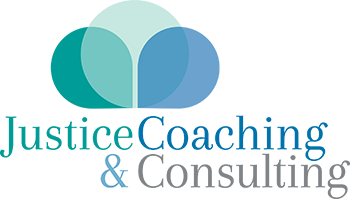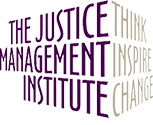Hon. Barbara J. Rouse (ret.)
and Jan C. Bouch, Psy.D., PCC
One day a highly credentialed and experienced attorney, the next, a novice judge. It is a transition marked by paradox-elation and anxiety, excitement and frustration, self-assurance and insecurity, certainty and disconcerting revelation. At a judge’s investiture, replete with fanfare and congratulatory speeches, a new judge’s past accomplishments and performance are celebrated. The following day she is the junior judge in a hierarchical court structure, subject to a new set of ethical and administrative constraints, including oversight by a chief justice1 or presiding judge.
By the time of her investiture, a newly appointed judge believes her appointment/election is the result of a carefully orchestrated career path, of deliberate choices and commitments. Judges come to the bench believing they know what to expect and convinced that they have what it takes to be a good judge. The more they believe in that paradigm, the less willing they are to change. Few are insightful enough to know, as executive coach Marshall Goldsmith said, “What Got You Here Won’t Get You There.”2 Goldsmith’s premise is that one’s previous success often prevents one from achieving more success. He suggests that successful people hold beliefs about their skills, talents, and past accomplishments that can hinder them from attaining higher levels of achievement. He further posits that they are reluctant to hear negative feedback and others are reluctant to give it to them.
The discrepancy between what new judges think they know or believe or expect, and the reality they encounter is a common phenomenon called cognitive dissonance. The theory of cognitive dissonance, proposed by psychologist Leon Festinger, describes the discomfort that results from this conflict and the need to accommodate or reconcile the perceived contradictions. A newly appointed judge’s assumptions about what she thought judging would be and the experience, therefore, present challenges for both the judge’s professional development and the court system. When there is a discrepancy between beliefs and circumstances, something must change to eliminate or reduce the dissonance. How judges get support initially to deal with this cognitive dissonance and receive feedback throughout the duration of their career depends on an assortment of variables, including court culture, educational offerings, and collegial support.
In general, court cultures resist change or innovation. Layered over court cultures are systems that look backward not forward; are cautious and risk adverse; and steeped in tradition. All of this contributes to a natural and understandable resistance to innovative practices that ruffle or challenge existing paradigms, including what it means to be a judge.
When a judge is newly appointed or elected, there often is not a method for acculturation into the role. Many jurisdictions provide training or education for judges primarily focused on substantive law and informal mentoring. There is very little, if any, discussion or consideration about the more existential aspects of what it means to be a judge or how to deal with the challenge of cognitive dissonance in judging. Furthermore, after the initial training, many jurisdictions provide little formal ongoing peer support or opportunities for ongoing professional evaluation and development. Judges are left to their own devices to cope with the stress and emotional strain of judging-often ignored in judicial initiation. And over the years compassion fatigue,3 as one judge calls it, sets in, the result of a judge becoming worn down and emotionally weary from hearing about victims of crime, people’s physical and emotional injuries, and dealing with conduct involving the darker side of human nature. Added to this are the demands of a complex organization and governance structure and a culture that may or may not align with a judge’s personal and professional values, assumptions and motivations.
Judicial systems must not only make it acceptable to get help at any point in a judge’s tenure, there must also be an infrastructure that builds enduring capacity and compassion to provide focused and consistent support to judges throughout their careers. This article describes innovative and successful mentor coaching programs developed and adopted in two jurisdictions, the Massachusetts Trial Court and the District of Columbia Superior Court, programs which address both the challenges of initial acculturation and the ongoing stresses of judging.
In general, court cultures resist change or innovation. Layered over court cultures are systems that look backward not forward; are cautious and risk adverse; and steeped in tradition. All of this contributes to a natural and understandable resistance to innovative practices that ruffle or challenge existing paradigms, including what it means to be a judge.
Massachusetts Trial Court
In Massachusetts the idea for a more formal, structured judicial mentor coaching program was born out of the realization that just asking one judge to “mentor” another without any training, support, or set expectations about goals or outcomes was not effective. The first step was to secure a commitment from judicial leadership to create and sustain a formal program.
In 2009, the Massachusetts Supreme Judicial Court applied for and received a technical assistance grant from the State Justice Institute (SJI). The grant was intended to be a proof of concept grant to assess the extension of “focused mentoring and coaching” into the judicial branch in Massachusetts where judges are appointed for life. In the grant, the Supreme Judicial Court sought education, skill building and ongoing support for judges asked to serve as “focused mentors” assigned to work with judges in need of assistance with specific issues.
The initial group of focused mentors, a diverse group of 19 judges representing each of the seven trial courts, received three days of intensive mentor coach training in October of 2010. The training consisted of a combination of theory and practice based on the skills and principles of executive coaching. The International Coach Federation defines coaching as partnering with colleagues in a thought-provoking and creative process that inspires them to maximize their personal and professional potential, which is particularly important in today’s uncertain and complex environment. Coaches honor the colleague as the expert in his or her life and work and believe every colleague is creative, resourceful and whole.4
In the judicial context, coaching is an intentional and focused conversation between the mentor coach judge and mentee judge that can be discordant with judging. Judges are sworn to be impartial decision makers based on facts and the law – not emotion. As a mentor coach, a judge is asked to be curious and probing with her peers and to engage in active listening to discern what is not being said. Mentor coach judges are trained not to advise, even if the answer is easy or obvious. Instead, by careful listening and thoughtful questions, a mentor coach attempts to guide the mentee judge to greater self-awareness and discovery about his/her judicial performance and facilitates the process by which the mentee judge identifies answers and strategies for improved performance.
Today, the peer-to-peer mentor coach program (known as the J2J Program: A Collaborative Professional Development Resource for Judges) continues to support Massachusetts’ judges with a cadre of over 75 formally trained mentor coaches and part-time dedicated staff. The program has expanded to make a mentor coach available to all judges beginning at appointment. The program is slowly changing the court culture and has systematically created the belief that a mentor coach is an integral part of every judge’s professional development.
In 2013, Massachusetts’ judges and staff affiliated with the J2J Program made a presentation at the National Association of State Judicial Educators annual conference. Shortly thereafter, the Superior Court of the District of Columbia contacted J & S Bouch Consulting, LLC to bring a similar program to their court. Not unlike most court systems, the District of Columbia Superior Court was aware that its informal mentor program was not providing judges the desired level of support. To date, the District of Columbia Superior Court has trained two groups of judicial coaches and has created policies and procedures and built an infrastructure to support judges throughout their careers.
Although the judicial cultures of Massachusetts and the District of Columbia differ, the models of these two jurisdictions share important commonalities:
- Both jurisdictions recognized that informal mentoring was not providing the desired level of support;
- Institutional infrastructure is vital for long-term sustainability;
- Judicial leadership is key to successful implementation of the program;
- Policies and practices must be expressly articulated and supported administratively;
- Coaching has a beneficial effect on both mentor coaches and court systems and brings renewed energy to the challenging work of judging.
The Evolution of a Title
What’s in a name? In the Massachusetts J2J Program, the trained judge was first referred to as a “focused mentor,” someone who assisted judges with specific issues. With time and experience, recognition grew that all judges could benefit from having sustained peer support, so the J2J Program was expanded to all judges and the simple term “mentor” was then used. As the program continued, the term “mentor” evolved to “mentor coach” to reflect more accurately the nature and scope of the relationship. The term “mentor coach” embraces the concept of a mentor in the classical sense of a wise and trusted counselor and the notion of coach, a partnership in a process of reflection and exploration. From the beginning, the District of Columbia Superior Court opted to use the title “judicial coach” to reflect the intent.
Whatever the title of the role (and that is very much culturally driven), learning when and how to distinguish various system roles of supervisor, mentor, or coach, is vital. For example, a chief judge may have to deny a vacation request due to overall court coverage needs; this is an act of supervision. A mentoring role may be called for when a minor suggestion would improve a judge’s overall courtroom management. This suggestion is a “telling” role. Coaching is appropriate where a judge may be consistently late in rendering decisions; the symptom is obvious – the underlying challenges are not. Coaching helps bring clarity and a generation of options to behaviors the mentee judge chooses to change. The role of a coach is not to make someone change but to help a mentee get better at what she chooses to change (Goldsmith). Whatever the title, effective coaching principles and practices remain the same.
Infrastructure and Policy Considerations
Historically, many mentoring/coaching programs have existed informally and casually. The key to a successful program that provides a continuum of support is strong infrastructure and well-articulated guiding principles and policies.
The Massachusetts J2J Program established a Peer Mentoring Policy and Practices Committee charged with developing best practices to ensure consistency, continuity, and effectiveness. The committee found that the following areas need definition and clarification for the program’s successful system-wide integration:
- Role of presiding or chief judge
- Selection and assignment of mentor coach and mentee
- Meeting schedule (including check-in meetings and annual meeting)
- Resolution of conflicts
- Issues and goal expectations
- Confidentiality
- Mentor coach
- Mandatory foundational training before assignment
- Mentor coach/mentee meeting expectations
- Ongoing mentor coach training
- Mandatory learning labs
- Optional trainings
Supporting Resources and Ongoing Learning Needs
In addition to foundational training, ongoing learning labs and role-playing, mentor coaches are provided with interesting articles such as Atul Gawande’s New Yorker (October 3, 2011) piece titled “Personal Best,” to spark conversations about their work.
Another powerful resource is the Judicial Capacity Wheel. The Judicial Capacity Wheel evolved from observation by a Massachusetts juvenile judge that the Wheel of Life5 could be adapted to the needs of judges (especially those newly appointed) to help focus attention on important development areas. The Judicial Capacity Wheel is designed as a self-assessment tool for judges to rate how they view their capacity in the following areas:
| Lawyer relationships | Relationships with external stakeholders |
| Organizational dynamics and culture | Jury management |
| Caseflow management | Self-represented litigants |
| Demeanor | Knowledge and use of resources |
| Time management | Courtroom management |
| Judicial-writing | Knowledge of the law |
| Judicial decision-making | Resiliency |
| Relationship with staff |
Many highly skilled professionals, judges included, do not get the opportunity to self-evaluate their capabilities when assuming a new or different position. The Judicial Capacity Wheel gives both the mentee judge and the mentor coach the opportunity to focus on the areas that will assist the mentee with her acculturation in the complex judicial environment.
The District of Columbia Superior Court uses a tool originally created by a Massachusetts judge: a 52-week schedule that recommends and tracks weekly events and communications. The District of Columbia Superior Court further developed the 52-week schedule to include topics for discussion, e.g., practical questions, boundary management, staff hiring, and supervision, listening skills, and courtroom management.
The District of Columbia Superior Court judges were coached using the ProfileXT, a validated instrument that measures learning index, behavioral traits and interests. The use of instruments, (both ipsative and validated) are commonly used in coaching relationships as a complementary tool to the coaching dialog.
Benefits and Lessons Learned (so far)
Since the program began in Massachusetts there have been a number of surprising and unanticipated benefits and lessons learned. Among the most far-reaching development was the desire and need to expand mentor coaching as an offering for all judges, including the chief justices of the Massachusetts Trial Court. The J2J Program has evolved as a way to enhance job satisfaction, spur introspection and self-awareness, change behaviors and improve performance. A particularly gratifying and unanticipated benefit is the mentor coaches’ sense of renewal and recommitment to their work as judges.
Much has been learned about what is needed to provide infrastructure support to sustain and maintain a robust program. Of critical importance, a peer-to-peer coaching program requires commitment and support from court leadership. In Massachusetts the chief justices of the seven trial courts are vital in terms of matching mentor coaches and mentees. The chief justice considers a variety of factors in making the matches including the personal and professional background of the mentor coach and mentee, personalities, judicial styles, and core competencies. It is essential that judges have a willingness to serve as mentor coaches as well as have the requisite qualities to be effective. Some specific areas of expertise the mentor should possess include: knowing how to teach; how to ask good, probing questions that will elicit the information necessary to identify the core issues; knowing when and how to challenge the mentee; knowing how to teach someone to be reflective and envision a better future; and knowing what specific action is required in order to achieve the desired outcome. Chief or presiding judges must also ensure mentor coaches have adequate time to be effective in the mentor coach relationship as part of the court day. Mentor coaches need ongoing education, time to review and refine best practices, and, in particular, opportunities to work on their skills and to spend time with other mentor coaches.
The chief justice plays a key role in working with the mentor coach and the mentee. It is essential that the chief justice or presiding judge meet with the mentor coach and the mentee at the outset of the match to define the relationship, set expectations, and emphasize her commitment to mentor coaching and its importance to the well being of the mentee and the court. The chief justice or presiding judge should also meet with the mentor and mentee at regular intervals and establish a schedule of contact between the mentor coach and mentee whether by phone, in person or by email. Expectations should be memorialized in a written agreement. The presence of the chief justice or presiding judge at core educational programs is important to reaffirm her commitment to the program.
Without the support of a structured mentor coaching program, judges are more likely to remain at a plateau — unable to see how their performance can be improved or how litigants, attorneys, and court staff perceive them. Relentless decision making leaves little time or psychic energy to examine one’s performance on one’s own. And the isolation inherent in judging promotes the tendency to be convinced of the correctness of one’s decisions.
In order to be truly effective, the concept of mentor coaching must become embedded in the culture and be accepted by judges as an essential part of professional development as well as job satisfaction. The chief justice or presiding judge must foster the notion that judging is an occupation of constant aspirations and a journey of self-awareness, of judges seeing themselves as others see them. One of a mentor coach’s primary responsibilities is helping the mentee with that self-assessment and assisting them with using that knowledge to become the best judge she can be.
Without the support of a structured mentor coaching program, judges are more likely to remain at a plateau — unable to see how their performance can be improved or how litigants, attorneys, and court staff perceive them. Relentless decision making leaves little time or psychic energy to examine one’s performance on one’s own.
Envisioning the Future
What is needed for the foreseeable future is an effort to support all judges – from those newly appointed to those nearing the end of their judicial career. Peer-to-peer support within the context of a formal mentor coach program is one powerful and empirically demonstrated way to lift up entire judicial systems. Traditionally, judges and legal professionals entered the workforce following pedagogical models that left them responsible for their ongoing learning and development. In today’s world, we have reached a level of complexity where an individual’s knowledge, insight and skills are often insufficient to achieve the highest level of performance. Atul Gawande notes that many professionals think they can “self-coach,” but very few actually can; successfully stopping or starting behaviors through self-will is extremely difficult.
The consequences of not having a formal mentor-coaching program, however, go far beyond making it difficult for judges to realize their professional best. Serious deficiencies in performance adversely affect litigants and the bar, do a disservice to the public, undermine the integrity of the judiciary, and lower the morale of other judges and court personnel. Discipline by judicial conduct commissions are often more punitive than palliative. Chief justices and presiding judges then have a significant problem in managing the judge and advancing her professional development. A trained mentor coach supported by the system can help a colleague reach her potential and assist the mentee in identifying troubling issues in her performance before remediation becomes more difficult.
As Gawande notes in Personal Best, coaching done well may be the most effective intervention designed for human performance. Mentor coaching programs harness existing resources – judges – who have the credibility and experience to assist their colleagues to become the best judges they can be. The peer-to-peer coaching model can profoundly affect a judge’s performance and job satisfaction and positively enhance the delivery of justice. It is indeed a model for the future.
Hon. Barbara J. Rouse (ret.) served as the Chief Justice of the Massachusetts Superior Court from November 2004 to November 2014. Prior to becoming Chief Justice she served as an associate justice for 19 years. Chief Justice Rouse has a B.A. from Smith College, a M.A. from Columbia University and a J.D. from Boston College Law School. For many years she taught a trial advocacy course for Massachusetts Continuing Legal Education and has presented at numerous educational programs for attorneys and judges. Chief Justice Rouse served as a judicial commentator for the Massachusetts Superior Court Civil and Criminal Practice Manuals. She is a past member of the board of editors for the Boston Bar Journal. Among other awards, she is the recipient of the Judicial Excellence award from the Massachusetts Judges Conference, the Haskell Cohn Distinguished Judicial Service Award from the Boston Bar Association and the Judicial Excellence Award from the Frank J. Murray Inn of Court.
Jan C. Bouch, Psy.D., PCC, MCCT, CEC, CEDP Fellow is an organizational and educational psychologist. She is a 1994 graduate of the Court Executive Development Program and a former court administrator and judicial educator. She is a professionally certified executive coach working with clients throughout the country. She is a member of the Coaching Center of Vermont and the International Coach Federation. Dr. Bouch has over 800 hours of professional coaching experience working with leaders and managers in both the private and public sector. Dr. Bouch is passionate about building community, being present, creating options, confronting assumptions, life-long learning, sharing insights, and being generous with her heart and mind. She believes that we all are capable of change and growth if we are able to face our self-defeating fears and doubt.
References
Goldsmith, M. (2007). What Got You Here Won’t Get You There. New York: Hyperion
Gawande, A. (2011). Personal Best. The New Yorker.
O’Neill, M.B. (2000). Executive Coaching with Backbone and Heart. San Francisco: Jossey-Bass
Schein, E. (2010). Organizational Culture and Leadership (4th Edition). San Francisco: Jossey-Bass
Town, M. (2004). Is Compassion Fatigue an Issue for Judges? (web article). Retrieved fromhttp://www.judgemiketown.com/judicial-compassion-fatigue
Zimmerman, I. (2002). Isolation in the Judicial Career. Court Review. Winter. Retrieved fromhttp://aja.ncsc.dni.us/courtrv/cr36-4/36-4Zimmerman.pdf
- In Massachusetts, Chief Justice of a trial court includes a dual role in making system wide policy as well as day-to-day operations. In most states, a chief judge or presiding judge governs the trial courts.
- Goldsmith, M., (2007). What Got You Here Won’t Get You There. New York, New York: Hyperion Publishers.
- Town, M.A. (2004). Is compassion fatigue an issue for judges? Available at http://www.judgemiketown.com/judicial-compassion-fatigue/
- http://coachfederation.org/need/landing.cfm?ItemNumber=978&navItemNumber=567
- Available at http://www.thecoaches.com/docs/resources/toolkit/pdfs/18-Wheel-of-Life-Exercise.pdf






